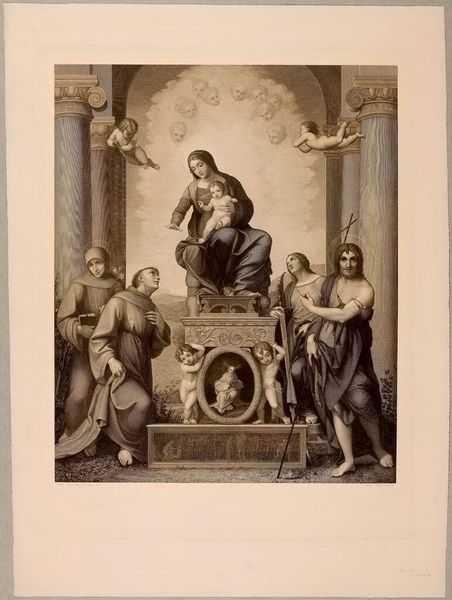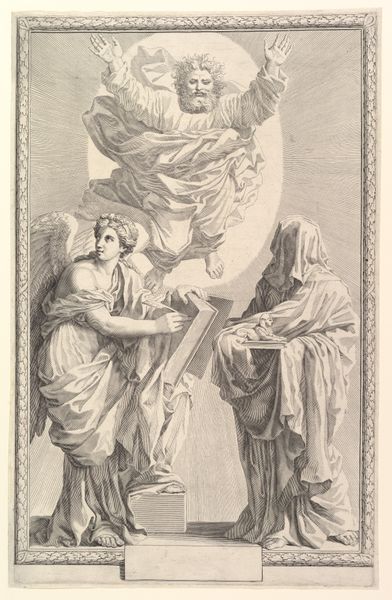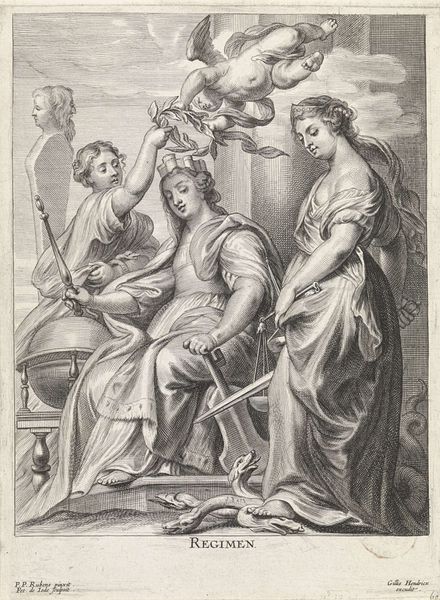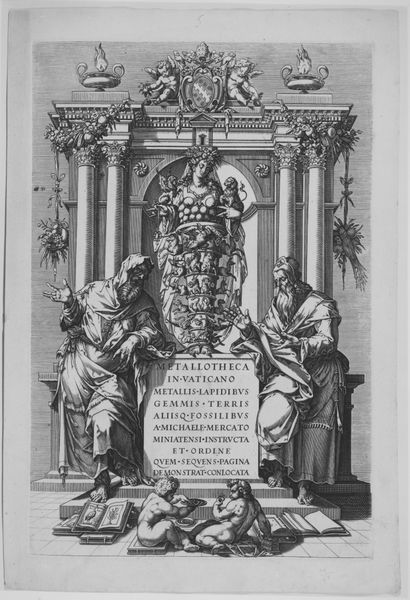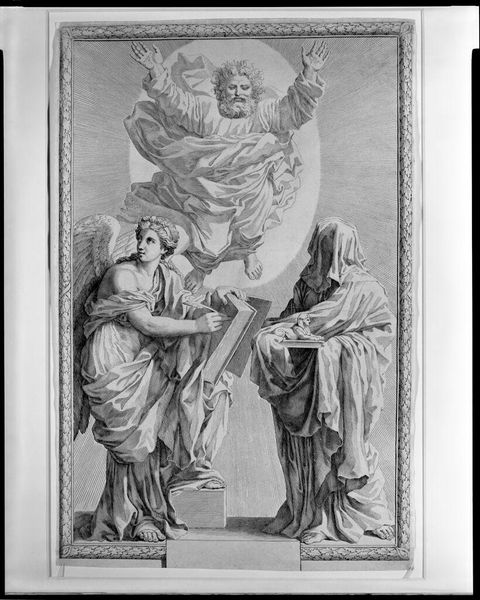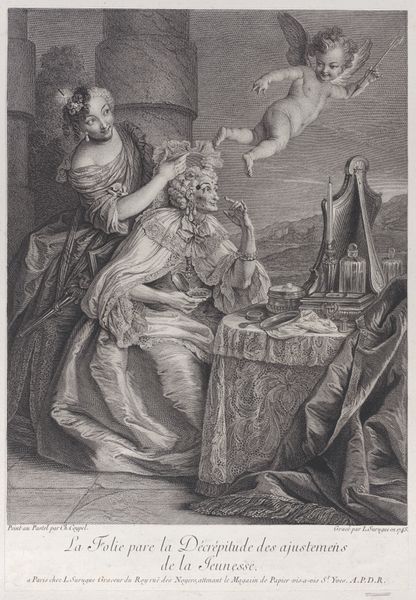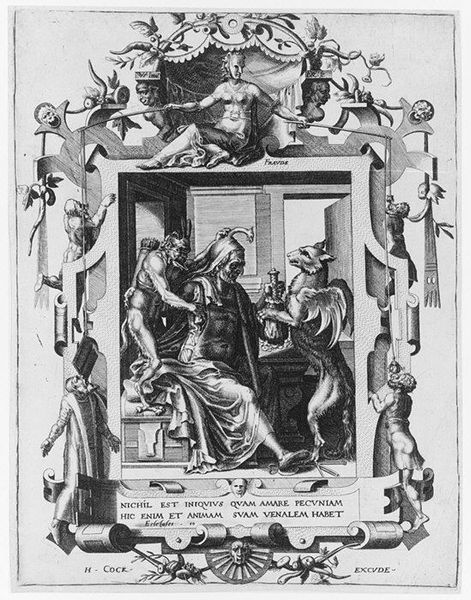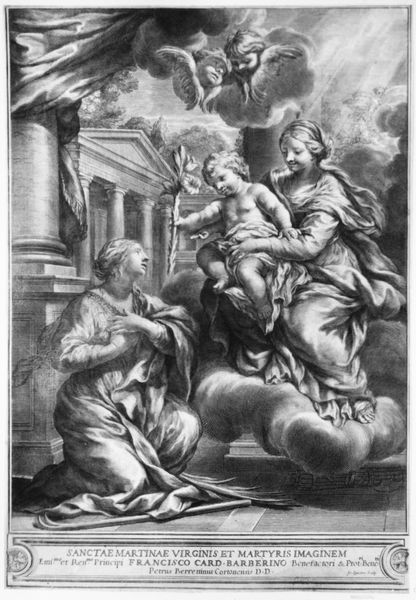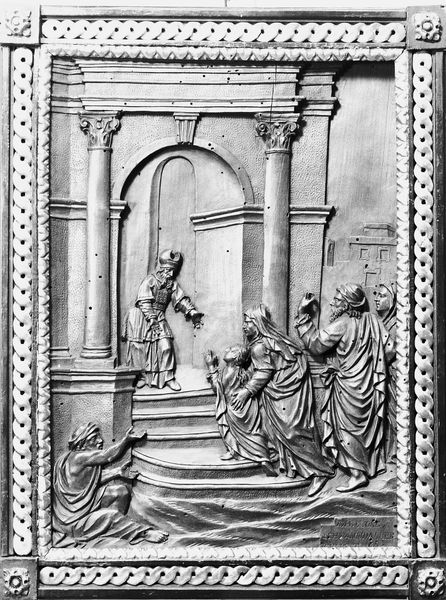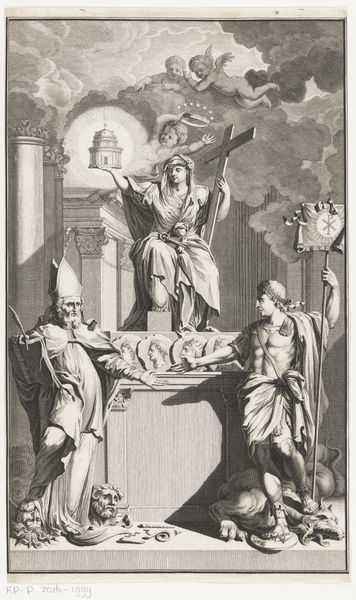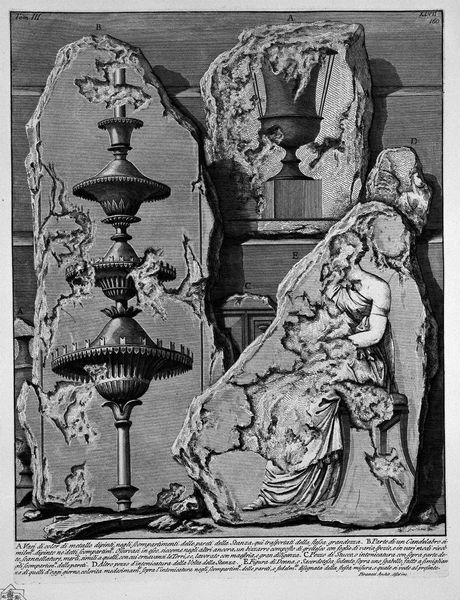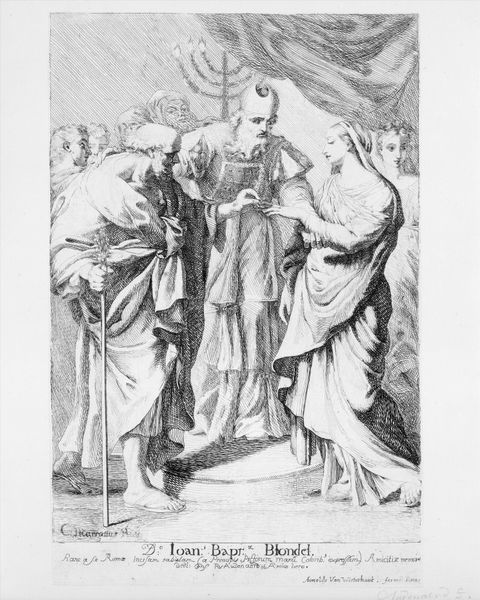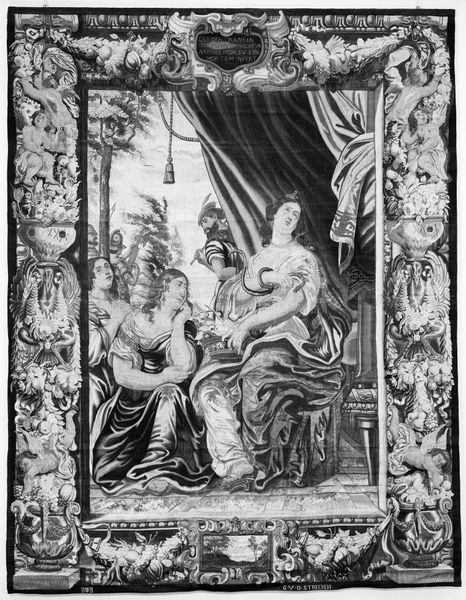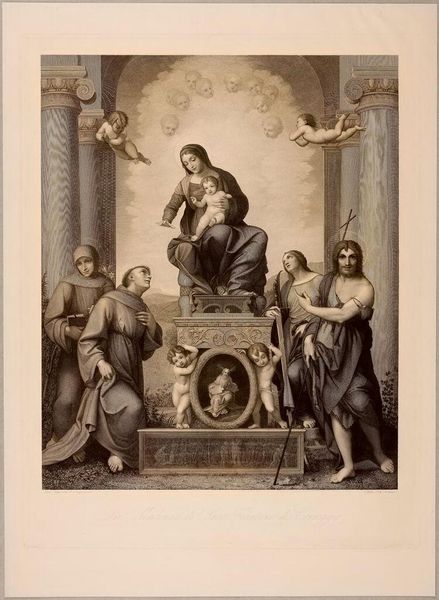
Apotheosis of Friedrich Wilhelm II, King of Prussia (b. 1744, r. 1786–97) 1794
0:00
0:00
relief, sculpture, marble
#
portrait
#
neoclacissism
#
allegory
#
relief
#
sculpture
#
history-painting
#
decorative-art
#
marble
Dimensions: 13 1/2 × 10 in. (34.3 × 25.4 cm)
Copyright: Public Domain
John Christian Rauschner created this plaster relief of Friedrich Wilhelm II in the late 18th century. It depicts the king's bust being crowned with laurel by a cherubic figure, flanked by allegorical representations of abundance and military strength. The laurel wreath, an ancient symbol of victory and honor, reappears throughout history, from the brows of Roman emperors to Renaissance paintings. Here, it signifies the king's triumphs and virtues. But consider its evolution: Initially a pagan symbol, it was later adopted by Christianity to represent the ultimate victory over death. This evolution reflects how symbols adapt across cultures and eras. Such imagery taps into our collective memory, evoking a sense of timeless glory and power. The artist uses this visual language to elevate Friedrich Wilhelm II, engaging viewers on a subconscious level with enduring symbols of authority and reverence. As we observe, this symbol experiences a cyclical progression, resurfacing and evolving, accumulating new layers of meaning throughout history.
Comments
No comments
Be the first to comment and join the conversation on the ultimate creative platform.
